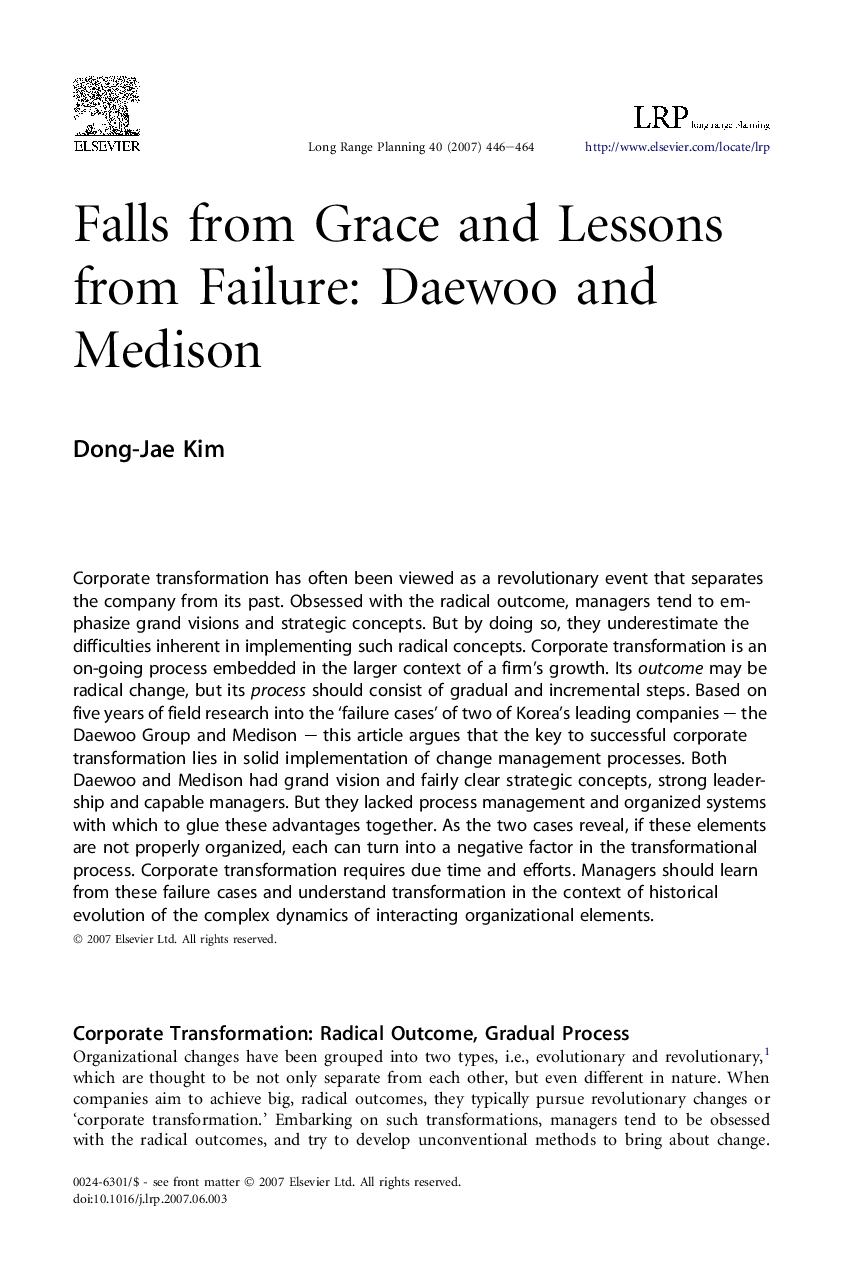| Article ID | Journal | Published Year | Pages | File Type |
|---|---|---|---|---|
| 1021671 | Long Range Planning | 2007 | 19 Pages |
Corporate transformation has often been viewed as a revolutionary event that separates the company from its past. Obsessed with the radical outcome, managers tend to emphasize grand visions and strategic concepts. But by doing so, they underestimate the difficulties inherent in implementing such radical concepts. Corporate transformation is an on-going process embedded in the larger context of a firm's growth. Its outcome may be radical change, but its process should consist of gradual and incremental steps. Based on five years of field research into the ‘failure cases’ of two of Korea's leading companies – the Daewoo Group and Medison – this article argues that the key to successful corporate transformation lies in solid implementation of change management processes. Both Daewoo and Medison had grand vision and fairly clear strategic concepts, strong leadership and capable managers. But they lacked process management and organized systems with which to glue these advantages together. As the two cases reveal, if these elements are not properly organized, each can turn into a negative factor in the transformational process. Corporate transformation requires due time and efforts. Managers should learn from these failure cases and understand transformation in the context of historical evolution of the complex dynamics of interacting organizational elements.
